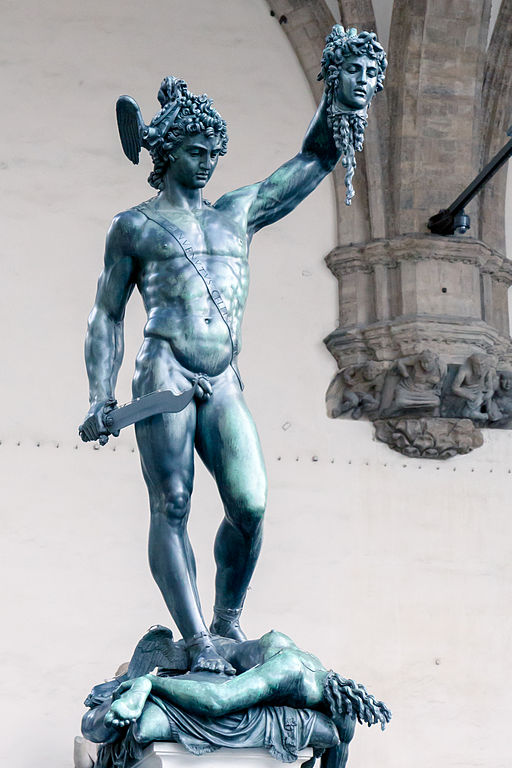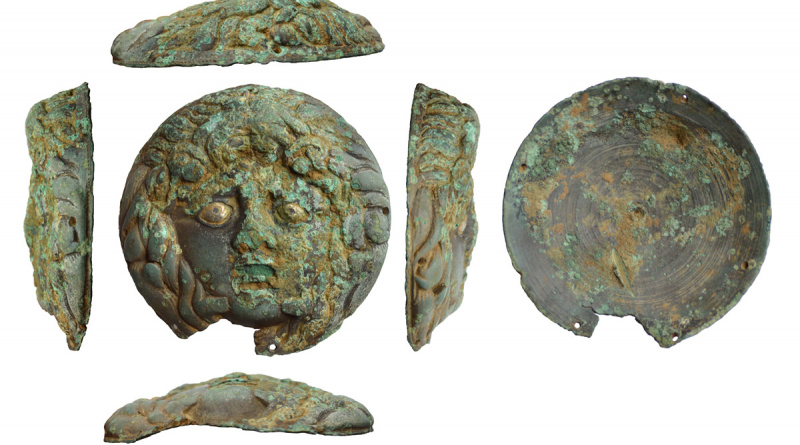Roman mount depicting Medusa
A copper alloy circular mount depicting the head of Medusa. The workmanship is of high quality and the condition is outstanding; it has been designated a Find of Note: National Importance.
Medusa
Medusa was one of three Gorgon sisters. Although her sisters were immortal, she was not. Living snakes formed her hair and her gaze could turn people to stone. In this mount the serpents curl down either side of her face with their heads above and to the sides of Medusa’s eyes. Particular attention has been paid to her eyes; sheet silver has been applied to each eye with the centre cut out to represent a pupil.
Perseus decapitates Medusa
King Polydectes of Seriphus was trying to force Perseus’s mother into marriage. Perseus was in the way and so Polydectes decided to send him on what he thought was an impossible mission “Fetch me the head of Medusa“. However, the gods helped him; a mirrored shield from Athena, winged sandals from Hermes, Hades’s cap of invisibility and a sword from Hephaestus.

Photo: Morio, CC By SA3.0
Perseus avoided Medusa’s gaze by using the reflection in Athena’s mirrored shield. He returned to Seriphus with her decapitated head and used it to turn Polydectes to stone.
Medusa’s double edged power
Perseus then gave the head to Athena, who placed it on her shield. Versions of the story with Athena giving out Medusa’s blood and hair to friends and family. These had the power to kill or raise from the dead.
The use of Medusa on Athena’s shield also serves the dual purpose of to protect (from supernatural forces) and to scare off enemies. Continuing to live despite being decapitated also linked her to the idea of continuity and longevity.
These were all very desirable properties in the ancient world and hence Medusa became a popular image in the Roman Empire, adorning a vast array of both military and domestic objects.
Use of this mount
This mount has five small holes on the outside edge. Their size indicates that they were probably used for attaching to a casket or similar, with the intention of invoking Medusa’s powers.

